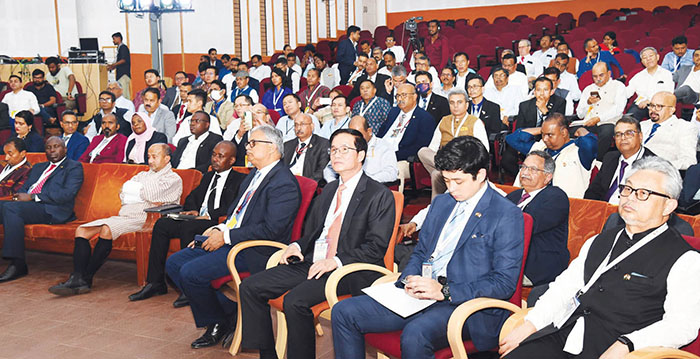India’s 23 tiger reserves have been accredited internationally: Minister Bhupender Yadav
Mysore/Mysuru: Union Minister of Environment, Forest and Climate Change Bhupender Yadav said that the Centre has demonstrated its commitment to tiger conservation with a 24 percent increase in allocation to the Ministry in the 2023-24 budget.
The allocation to the Environment Ministry has been increased from Rs. 2,478 crore last year to Rs. 3,079 crore this year and it comes to an increase of over Rs. 600 crore. Of that, Rs. 380 crore has been reserved for tiger conservation.
“In 2014, Rs. 185 crore had been reserved for tiger conservation and it has gone up now to Rs. 380 crore,” he added.
The Minister was speaking at a workshop on the side-lines of the event to commemorate 50 years of ‘Project Tiger’ yesterday at the Cauvery Hall of Karnataka State Open University (KSOU).
He said that the Government of India has demonstrated its commitment to tiger conservation by increasing the number of tiger reserves from initial nine in 1973 to the current 52 in the Azadi Ka Amrit Mahotsav under the Prime Minister’s leadership, the latest being Ramgarh Vishdhari in Rajasthan. Of the total 52 tiger reserves, 23 have received international accreditation.

“The Government is committed towards the well-being of the people who inhabit these tiger-bearing landscapes through creation of various livelihood opportunities and interventions,” the Union Minister added.
Bhupender Yadav emphasised on promoting low impact sustainable tourism in tiger reserves with maximisation of visitor satisfaction and direct benefit sharing with locals. “Tiger symbolises power, plays a crucial role in conservation of biodiversity, forest, water and climate security. It is a matter of great pride that India is a global leader in tiger conservation and is collaborating with many countries for the cause of tiger conservation,” he added.
On an average, the tiger reserves generate employment for over 50 lakh man-days annually, he added. He said that the Government is trying to bring all potential tiger habitats under the coverage of Project Tiger by declaring them as tiger reserves.
“With more than 70 percent global tiger population, India is the leader in the field of tiger conservation. I must say that there is no parallel for a species-focused project of such a grand scale in the world like Project Tiger and it has been successful in bringing tigers back from the brink of extinction. Tiger reserves have also given alternative livelihood opportunities to people in the form of eco-tourism and ancillary activities,” he noted.








Recent Comments